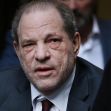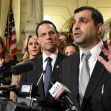In a virtual hearing on November 20, The Pennsylvania Supreme Court Justices homed in on a specific area of interest concerning an appeal of Bill Cosby’s prior conviction: what is the permissible legal scope of using ‘prior bad acts’ witnesses?
The use of ‘prior bad act’ refers to witnesses who testify in court about a defendant acting in a strikingly similar way with them prior to the current trial and accusations. In Cosby’s case, the use of ‘prior bad act’ witnesses bolstered the defendant’s case of being drugged and sexually assaulted by Cosby, since each of the five witnesses described extremely similar, specific experiences.
Actor and comedian Bill Cosby, 83, is in the midst of serving a 3 - 10 year sentence in Philadelphia for his sensational conviction of drugging and sexually assaulting former Temple University employee Andrea Constand.
In court yesterday, The Pennsylvania Supreme Court Justices focused on a specific area of interest that revisits Cosby’s oft-repeated defense during his 2016 trial and 2018 retrial: should ‘prior bad act’ witnesses have been included in his trial?
The justices this week discussed the inclusion of five ‘prior bad acts’ witnesses in Cosby’s 2018 re-trial, where Judge Steven O’Neill not only focused on Constand’s testimony but also that of five other women. The women testified Cosby had also drugged them in order to sexually assault them, well before Constand’s similar experience with him.
The use of ‘prior bad acts’ witnesses in a criminal trial can be unfairly prejudicial to the defendant and is only allowed in certain instances. In Pennsylvania, the use of this type of testimony seems far from settled, as evidenced by its recent consideration in an appeal heard by the Pennsylvania Supreme Court concerning Charles Hicks, convicted for the murder of a woman in the Poconos and now on death row. Prosecutors in the case offered three ‘prior bad act’ witnesses in his trial, all women who said they were beaten and choked before the murder of the victim in Pennsylvania.
On appeal, Hicks’ attorneys argued it was prejudicial to have the women speak at the trial, but the prosecutors argued they wanted to show a pattern of singular, similar conduct.
Though the Pennsylvania Supreme Court Justices upheld Hicks’ conviction, they also issued five different opinions on the usage of ‘prior bad act’ testimony, leaving the law cloudy at best.
At this week’s appeal, Cosby’s attorney Jennifer Bonjean told the court on Tuesday that the five witnesses who spoke against Cosby in his 2018 re-trial unfairly prejudiced the jury. Her partial basis for this argument is the ‘prior bad act’ law.
Although Cosby will most likely remain behind bars, his appeal may change the direction in how the murky ‘prior bad act’ law is used in court.
As to whether the appeal will be dismissed by the Pennsylvania Supreme court, it will take several months for their ruling to be announced.






